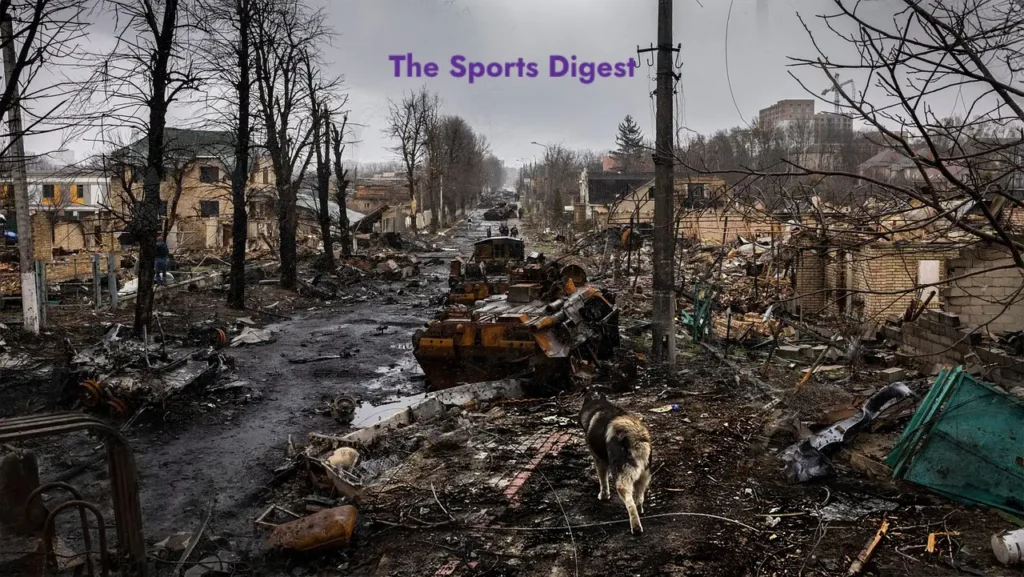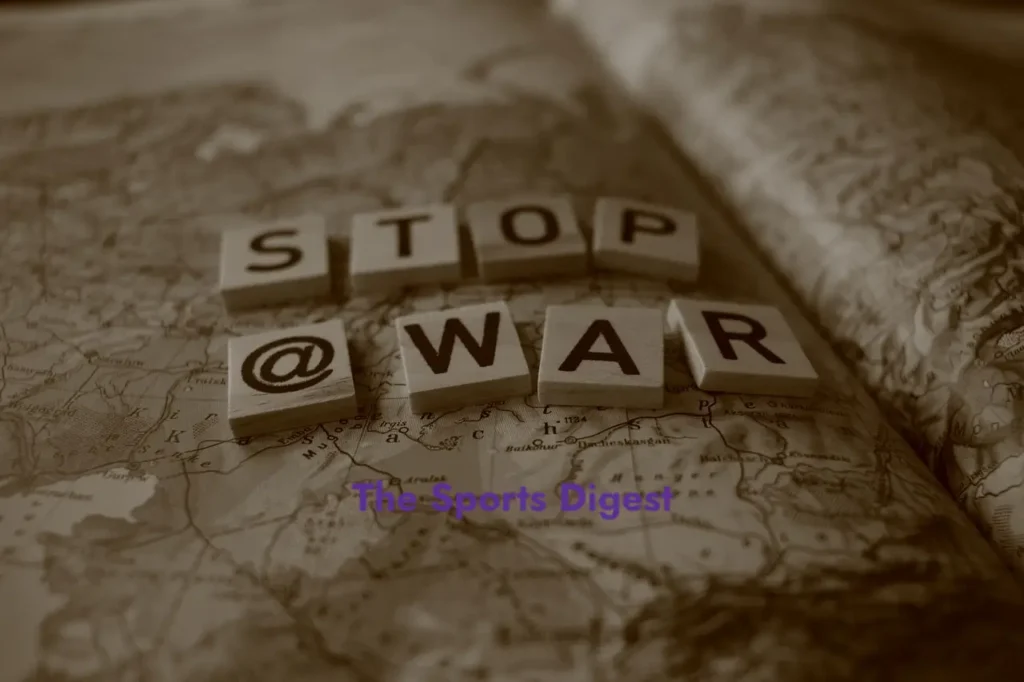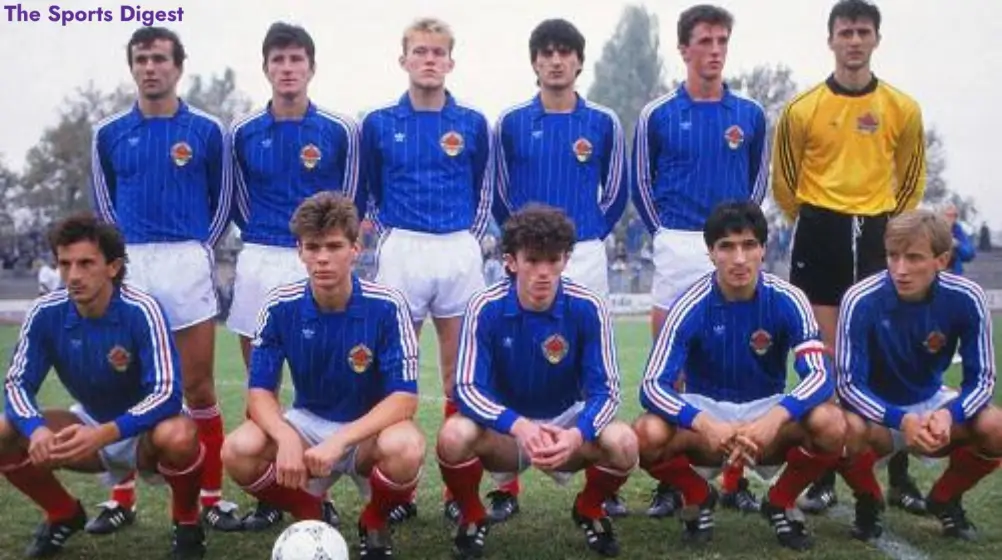Yugoslavia: 1987 Youth World Cup Triumph & Tragedy
In 1987, Yugoslavia stood at the pinnacle of youth football after winning the FIFA U-20 World Cup, showcasing a talented generation that could have changed the course of football history. However, this dream was short-lived, as the country collapsed following a brutal civil war in 1991, scattering this golden generation across the newly formed nations. How did Yugoslavia collapse? And what was the impact on the youth world champions? Let’s uncover the full story.
Table of Contents
How Did Yugoslavia Collapse?
- Ethnic Tensions and Internal Divisions : Yugoslavia was a diverse, multi-ethnic state, home to Serbs, Croats, Slovenes, Bosniaks, Macedonians, and Albanians, each with distinct cultures and identities. Under the leadership of Josip Broz Tito, the country maintained stability, but his death in 1980 created a power vacuum. Nationalist tensions began to rise among the different ethnic groups, and political instability followed. As the central government weakened, these tensions intensified, eventually leading to the disintegration of the country. The growing nationalist movements ultimately fueled the violent breakup of Yugoslavia.
- Economic Collapse and Rising Social Issues : By the late 1980s, Yugoslavia was grappling with a severe economic crisis marked by skyrocketing inflation and rising social discontent. The economic turmoil deepened divisions within the country, and some republics, like Slovenia and Croatia, began pushing for independence. These republics sought greater autonomy, fueled by growing nationalist sentiments. Meanwhile, Serbia, under Slobodan Milošević, aimed to maintain control over the federation, leading to escalating tensions. The struggle for political power and independence among the republics intensified, ultimately contributing to the violent breakup of Yugoslavia.
- Rise of Nationalism and Moves Toward Secession : With nationalist leaders like Slobodan Milošević in Serbia and Franjo Tuđman in Croatia, separatist sentiments grew stronger. Slovenia and Croatia declared independence in 1991, leading to war between Serbian forces and the new republics’ armies. The conflict quickly spread to Bosnia and Herzegovina, igniting one of the most brutal civil wars in European history.
- International Interventions and Economic Sanctions : The international community struggled to curb the escalating violence but imposed economic sanctions on Serbia and Montenegro, further isolating the country and worsening its crisis. The war raged throughout the 1990s, leaving hundreds of thousands dead and millions displaced.

Impact of the War on the 1987 Golden Generation
- The Scattering of Talent Among New Nations : The 1987 Yugoslav youth team featured some of the world’s most talented players, including Zvonimir Boban, Robert Prosinečki, Dragan Stojković, Siniša Mihajlović, and Dejan Savićević. However, the collapse of Yugoslavia meant these players now represented different nations, making it impossible to keep them together in one team.
- Depriving the World of a Potentially Historic Team : Had Yugoslavia remained united, this generation could have achieved great success on the international stage, potentially competing for World Cup and European Championship titles throughout the 1990s and early 2000s. However, the split forced players into separate national teams, diminishing their collective strength.
- Players Becoming Symbols of National Struggles : With nationalism sweeping the region, some players became symbols of their respective countries’ struggles. Zvonimir Boban, for instance, became a Croatian hero after clashing with a Serbian policeman during a Dinamo Zagreb vs. Red Star Belgrade match in 1990, an incident that symbolized Croatia’s push for independence.
- Personal Hardships for Some Players : Many players faced personal struggles due to the war. Siniša Mihajlović, a Serb, endured difficulties because of his mixed heritage—his mother was Croatian. Dejan Savićević, from Montenegro, witnessed his country suffering from international sanctions and conflict.

What Did Football Lose Due to Yugoslavia’s Collapse?
- The Absence of a Team That Could Challenge the Best : During the 1990s, France, Brazil, and Germany dominated international football, but a united Yugoslavia could have been a serious contender. With world-class talent, a solid midfield, and a top goalkeeper, they had the ingredients for success. Their technical skill and tactical discipline could have challenged the best teams. Unfortunately, political turmoil denied football fans the chance to witness their full potential. The absence of this team remains one of football’s greatest “what if” scenarios.
- The Loss of a Unified Footballing Identity : Before the war, Yugoslavia was renowned for its technical and attacking style, combining Brazilian flair with European discipline. This unique footballing identity made them a force to be reckoned with on the international stage. However, after the breakup, this style was fragmented across several newly formed national teams. Each team struggled to replicate the unified brilliance that Yugoslavia once displayed. The loss of this cohesive footballing philosophy made it more difficult for the individual nations to achieve consistent international success. The potential of a unified Yugoslavia’s football identity was never fully realized.
- The War’s Impact on Future Generations : The consequences of the war stretched far beyond the 1987 generation, deeply impacting football in the region. Infrastructure in places like Bosnia and Serbia was heavily damaged, which disrupted the development of youth football programs. Many training facilities were destroyed, and the lack of resources hindered the growth of aspiring footballers. The war also led to a brain drain, with many coaches, players, and football experts fleeing the region. This left a significant void in the development of young talent. As a result, future generations faced enormous challenges in reaching their potential, and the region’s footballing progress was significantly delayed.

Conclusion: A Dream Lost to Politics and War
Yugoslavia had a golden generation capable of reshaping football history, but political and military conflicts shattered this dream before it could fully materialize. The nation was torn apart, yet the talent remained, and many players went on to shine with their new national teams and top clubs around the world. Names like Boban, Prosinečki, and Mijatović became legends, proving the immense potential that was lost.
Football fans will always wonder: What if Yugoslavia had stayed united? Could they have dominated world football? While time cannot be reversed, the story of the 1987 generation serves as a powerful lesson. It highlights how political and ethnic conflicts do not just destroy nations but also erase opportunities, dreams, and legacies. The world was deprived of witnessing what could have been one of the greatest teams in history. Yet, their scattered brilliance remains a testament to what was lost.
Have you ever read an article like this?
There are no reviews yet. Be the first one to write one.






